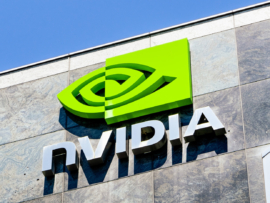
The US is allowing NVIDIA and AMD to resume selling their advanced artificial intelligence chips to China, despite previous concerns about national security.
A US official told Reuters that, in exchange, the companies must hand over 15% of the revenue from these sales to the government. An NVIDIA spokesperson did not deny this when questioned by the publication, simply stating, “We follow rules the US government sets for our participation in worldwide markets.” They also said that NVIDIA hadn’t shipped its H20 AI chip to China for months.
The US has sought to maintain its sovereignty in AI by restricting China’s access to cutting-edge hardware developed by American companies, which is essential for training and deploying powerful AI models. In addition to financial motivations, Washington has cited national security concerns, particularly China’s potential use of AI for military applications.
As of April, President Donald Trump has required US firms to obtain licenses before selling chips to China, costing NVIDIA an estimated $5.5 billion in lost sales. These included the H20 chip, which NVIDIA developed specifically to bypass the US’s first set of chip export controls from 2022.
In July, NVIDIA CEO Jensen Huang revealed that he expected to resume sales of H20 chips in China, as the US government had assured him that licenses would be granted soon. A US official confirmed to Reuters last week that licenses for H20 chip sales were already being issued.
Nevertheless, according to the Financial Times, the US government would only provide export licenses for Chinese sales of NVIDIA and AMD chips, including the latter’s MI308, if they agreed to the 15% levy. At the same time, the Trump administration had yet to determine how it would use its new revenue stream.
AMD and China’s foreign ministry did not immediately respond to a request for comment from Reuters.
Trump administration conflicted over ensuring national security and the economic benefits of chip sales to China
The US’s export rules have put a massive dent in NVIDIA’s profits. Sales from China made up 26% of its total revenue in 2022, but dropped to 17% in 2024, according to MarketWatch. Bernstein Research analyst Stacy Rasgon estimated that the share would be approximately 13% by the end of 2025, even before the new license requirements took effect in April.
The US government has so far accepted this economic cost in the name of national security. Yet the new arrangement, granting export licenses in exchange for a share of the profits, signals that it hopes to recapture some of the lost revenue without a complete U-turn. Critics, however, argue it delivers the worst of both worlds.
“Either selling H20 chips to China is a national security risk, in which case we shouldn’t be doing it to begin with, or it’s not a national security risk, in which case, why are we putting this extra penalty on the sale?” Geoff Gertz, a senior fellow at the Center for a New American Security think tank, told Reuters.
Nevertheless, US Commerce Secretary Howard Lutnick told CNBC in July that the resumption of sales of AI chips to China was merely a means of negotiating access to China’s rare earth metals, which are essential to the electronics industry. China dominates the global supply of these minerals, in part because it keeps the specialised machinery required for their processing under an export ban.
Lutnick also noted that the H20 is only NVIDIA’s “fourth best” chip, implying it poses little national security risk, and that keeping Chinese companies reliant on the more basic US technology, rather than domestic alternatives, serves American interests.
Meanwhile, NVIDIA has announced plans for a new chip for Chinese clients that is designed for robotics and smart factories and is fully compliant with US regulations.
AI companies in China have formed two new alliances aimed at reducing the industry’s reliance on the US.





